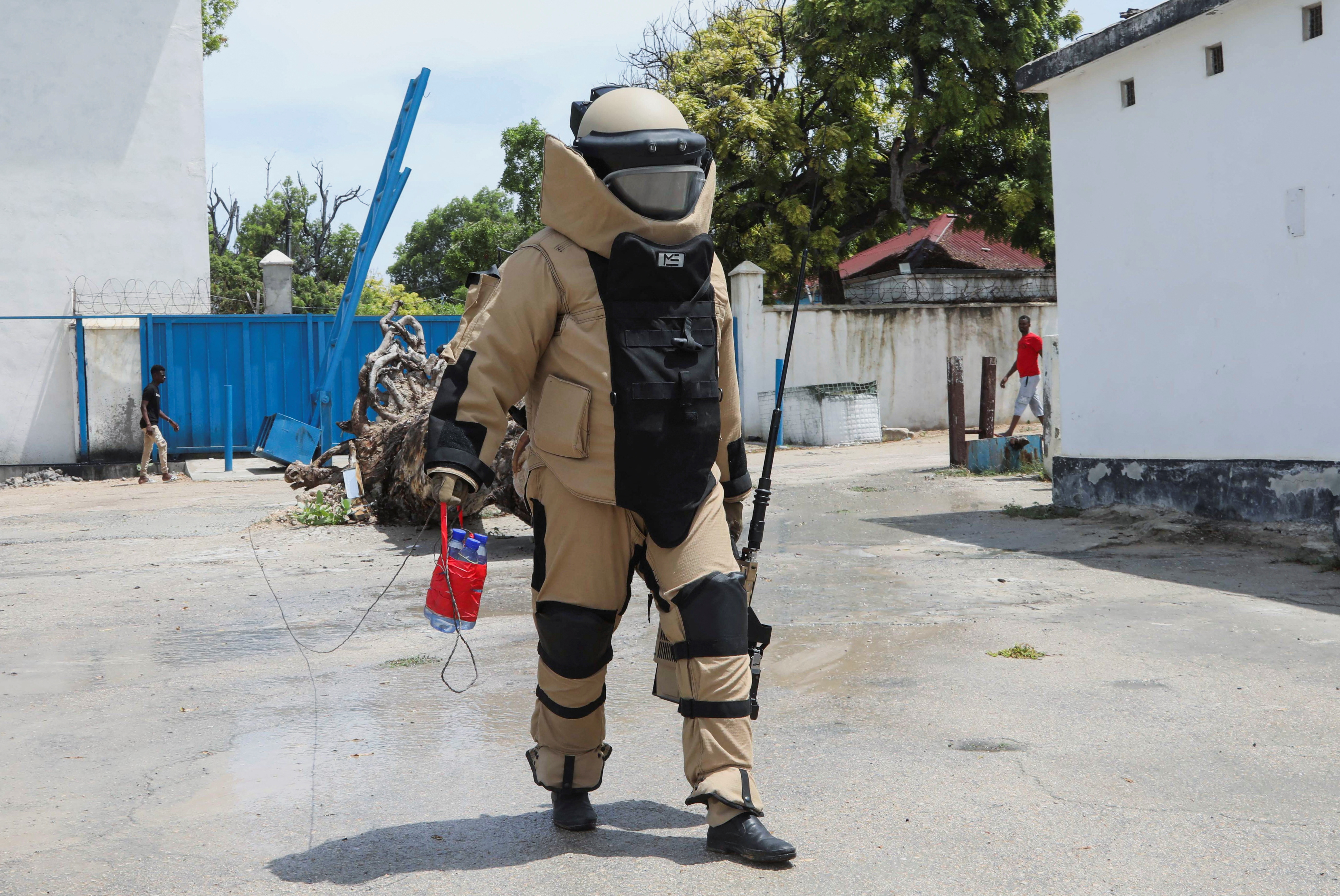
Somalia’s explosive disposal specialists confront their fears in order to safeguard lives
Mohamed Ahmed, who is donning a protective suit and helmet, approaches the vehicle in the Somali capital of Mogadishu, where explosives have been planted and connected to a mobile phone.
Ahmed, a police officer, is fortunate in that this is a training exercise and the device is a decoy.
In Somalia, insurgents affiliated with al Qaeda have been engaged in a protracted conflict with the government since 2007. This technique, including suicide attacks with vehicles, is frequently employed in bombings.
Five individuals were killed in a recent attack by fighters from the al Shabaab militant group, who used a car bomb to detonate a restaurant in the capital where soccer fans were viewing the final of the Euro 2024 tournament on television.
Ahmed, a member of the Explosive Ordnance Unit, expressed his dread and the sense that he was at risk of his life. “But we work carefully together and consider that we’re saving the lives of our citizens.”
According to the United Nations Mine Action Service (UNMAS), Ahmed’s unit is also responsible for managing the estimated one million mines and other unexploded ordnance that have killed or injured over 1,700 individuals throughout Somalia after three decades of civil conflict.
Hussain Ahmed, the dog trainer for the bomb squad, reports that he occasionally encounters stigma due to the fact that canines are regarded as unclean in Islam.
“If they say we shall not shake hands or greet you, we are indifferent, without a grudge,” according to him.
“Yes, there is impurity from dogs, but dogs prevent explosions that would kill thousands of Somalis, so they have their benefits.”
All Categories
Recent Posts
Tags
+13162306000
zoneyetu@yahoo.com



